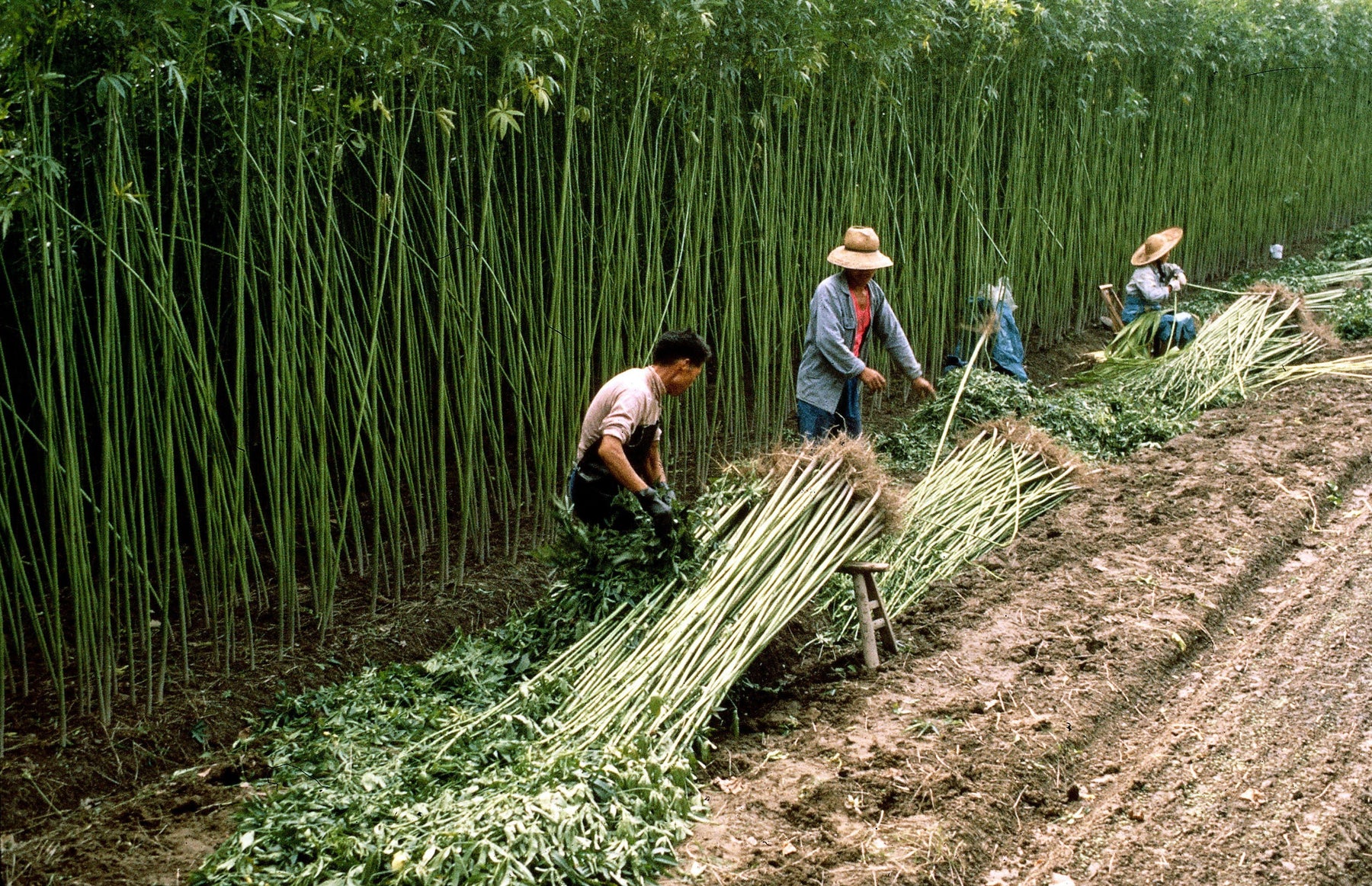
This manual provides a general overview of hemp stalk processing methods, focusing on techniques that can be implemented with manual labor or with limited access to heavy machinery.
1. Harvesting & Pre-Processing
- Harvesting:
- Manual: Cut stalks by hand using sickles or similar tools. This method is labor-intensive but suitable for small-scale operations.
- Mechanical: Utilize hand-held or small-scale mechanical harvesters for larger areas.
- Field Drying:
- Spread stalks evenly in the field to dry in the sun.
- Regularly turn the stalks to ensure even drying.
- Monitor moisture content to prevent mold growth.
- Debudding:
- Manually remove flower heads from the stalks using hand tools or small mechanical devices.
2. Retting
- Dew Retting:
- Spread stalks in rows in the field and allow dew and rain to soften the bark.
- Turn the stalks regularly to ensure even decomposition.
- This process takes several weeks and is highly dependent on weather conditions.
- Water Retting:
- Submerge stalks in water (pond, tank, or river) for several days.
- Monitor water temperature and pH levels.
- Requires access to a suitable water source and may have environmental impacts.
- Green Retting:
- Leave stalks in the field for a short period to allow some natural decomposition before further processing.
3. Decortication (Separating Fiber from Core)
- Manual Methods:
- Scutching: Beat the stalks with a wooden tool to separate the fibers from the woody core.
- Hackling: Comb the fibers to remove shorter fibers, impurities, and debris.
- These methods are labor-intensive but suitable for small-scale operations.
- Simple Mechanical Aids:
- Utilize hand-cranked or pedal-powered machines to assist with scutching and hackling.
4. Fiber Processing
- Cleaning: Remove any remaining impurities such as seeds, leaves, and bark fragments.
- Sorting: Separate fibers by length and quality.
- Drying:
- Air dry the fibers in a well-ventilated area.
- Consider using dehumidifiers to speed up the drying process.
5. Further Processing (Optional)
- Spinning: Spin the fibers into yarn using hand spindles or simple spinning wheels.
- Weaving: Weave the yarn into fabric using hand looms or simple weaving techniques.
Important Considerations:
- Safety: Use appropriate safety gear (gloves, eye protection) during all stages of processing.
- Environmental Impact: Minimize environmental impact by using sustainable practices and managing waste responsibly.
- Quality Control: Regularly inspect the quality of the fibers throughout the process.
- Experimentation: Experiment with different techniques and methods to optimize the process for your specific needs and resources.
Note: This manual provides a general overview of hemp stalk processing methods suitable for small-scale, manual operations. More advanced techniques and machinery are available for large-scale production.
Disclaimer: This information is provided for educational purposes only and may not be suitable for all situations. Always prioritize safety and environmental considerations.
This manual provides a basic framework for processing hemp stalks using manual labor. It emphasizes the importance of safety, sustainability, and experimentation.
Remember to adapt these methods to your specific needs and resources.


